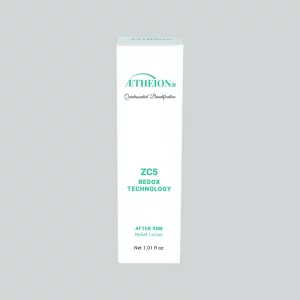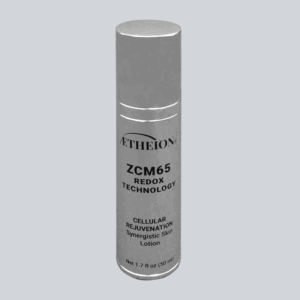Low on Vitamin D? Here Are 5 Important Reasons Why
Table of Contents
Did you know that a staggering 1 billion people worldwide are low on Vitamin D? This vital nutrient plays a crucial role in maintaining our overall health, from supporting bones to boosting our immune system and even regulating our mood.
Yet, despite its importance, unawareness of the risks and consequences associated with low levels of Vitamin D puts many in danger.
Continue reading to shed light on this silent epidemic and provide you with actionable steps to prevent and combat Vitamin D deficiency.
What is Vitamin D? Why is Vitamin D Essential?
Have you ever wondered what makes Vitamin D unique and crucial for your well-being?
Often referred to as the "sunshine vitamin," Vitamin D is a fat-soluble nutrient that our bodies can produce when exposed to sunlight. Unlike other vitamins, it also functions as a hormone, regulating numerous essential processes in our system.
Three features of vitamin D
Bone Health: Vitamin D is the superhero of bone strength! It helps your body absorb calcium and phosphorus, two minerals indispensable for maintaining strong bones and teeth. Without adequate Vitamin D levels, the bones can become weak, brittle, or even misshapen, leading to conditions like osteoporosis and rickets.
Immunity: Did you know that Vitamin D plays a significant role in bolstering our immune system? It enhances our body's natural defense mechanisms, helping us fight off infections and ward off illnesses. Studies have shown that people with low Vitamin D levels are more susceptible to catching colds, flu, and other respiratory issues.
Mood Regulation: Ever felt a little down on a cloudy day? There might be more to it than just the gloomy weather. Vitamin D can influence mood by regulating the production of serotonin, the "feel-good" hormone. Low levels of Vitamin D have been linked to an increased risk of depression and anxiety.
With such a myriad of benefits, it's no wonder that ensuring optimal Vitamin D levels is vital for your overall health and happiness.
What Makes You Be Low on Vitamin D?

Are you getting enough of that sunshine vitamin? Surprisingly, most people aren't. It's essential to understand the root causes of why you are low on vitamin D. Let's explore some of the main factors contributing to low Vitamin D levels and how they might affect you and your loved ones.
- Limited Sun Exposure: In today's fast-paced world, one spends more time indoors than out in the sun. Office jobs, long commutes, and a preference for indoor activities can significantly reduce our exposure to sunlight. Add to that living in areas with limited sunlight or using sunscreen diligently (which is great for protecting our skin), and you've got a recipe for Vitamin D deficiency. So, How much sun are you getting enough sun?
- Dietary Factors: While our bodies can produce Vitamin D from sunlight, we can also obtain it through our diet. However, only a handful of foods contain significant amounts of this essential nutrient, making it challenging to meet daily needs through food alone. Do you include enough Vitamin D-rich foods in your meals? If not, it might be time to reevaluate your diet.
- Age: Your body becomes less efficient at producing Vitamin D. Studies show that people aged 65 and above make only 25% of the Vitamin D that a younger person would with the same amount of sun exposure. Time waits for no one, but that doesn't mean you can't take action!
- Skin Pigmentation: Did you know that individuals with darker skin tones are more prone to Vitamin D deficiency? Melanin, the pigment responsible for skin color, reduces the skin's ability to synthesize Vitamin D from sunlight. Don't let your natural glow stand in the way of your health!
- Medical Conditions: Certain conditions can hinder our body's ability to absorb or metabolize Vitamin D, leading to a deficiency. Malabsorption syndromes such as Crohn's disease and celiac disease, kidney and liver diseases, and even obesity can all negatively impact our Vitamin D levels. It's crucial to consider these underlying health issues when addressing a deficiency.
As you can see, various factors can contribute to low Vitamin D levels, and be aware of these potential causes.
Identifying whether you're at risk of deficiency is the first step towards taking proactive measures to boost your Vitamin D levels and reap its incredible health benefits.
Symptoms and Diagnosis of Vitamin D Deficiency
Are you constantly feeling tired or experiencing muscle weakness? Have you noticed you're more prone to catching colds or struggling with bone pain? These seemingly unrelated issues could point toward a vitamin D deficiency.
Common Symptoms When You're Low on Vitamin D

- Fatigue: Do you often feel like you're running on empty, even after a good night's sleep? Persistent fatigue can be a tell-tale sign of low Vitamin D levels.
- Muscle Weakness: Are you finding it harder to carry out everyday tasks or feeling weaker during workouts? Vitamin D deficiency might be to blame.
- Bone Pain: Experiencing unexplained aches and pains in your bones or joints? It's time to consider whether your Vitamin D levels are up to par.
- Frequent Infections: Catching colds more often than usual? A weakened immune system due to low Vitamin D levels could be the reason behind those pesky sniffles.
- Hair loss: Your hair may suffer if you’re low on vitamin D. Studies illustrate a correlation between vitamin D deficiency and alopecia areata.
Now that you know the warning signs, you might wonder: how can I be sure if I'm Vitamin D deficient? The key lies in early diagnosis and treatment.
Diagnosing When You Are Low on Vitamin D:
A simple blood test is all it takes to determine your Vitamin D status. Your healthcare provider will evaluate your medical history, assess your risk factors, and recommend the 25-hydroxyvitamin D (25(OH)D) test.
This test measures the amount of Vitamin D in your bloodstream, an accurate assessment of your body's Vitamin D levels.
Remember, early diagnosis and treatment are crucial in preventing the long-term consequences of Vitamin D deficiency. So, if you identify with any of the symptoms discussed or have risk factors for deficiency, don't hesitate to consult your healthcare provider and request a blood test.
Preventing and Treating Vitamin D Deficiency: A Comprehensive Guide
Are you ready to take charge of your health and ensure optimal Vitamin D levels for you and your loved ones?
1. Sunlight Exposure: Striking the Right Balance
Did you know that 15-30 minutes of sun exposure daily can significantly boost your Vitamin D levels? But how do we find the sweet spot between soaking up the sunshine and protecting our skin from harmful UV rays?
- When: The best time to catch some rays is mid-morning or late afternoon when the sun is less intense.
- Where: Expose your face, arms, and legs to the sun, ensuring that at least 25% of your skin is uncovered.
- How: Remember to strike a balance – use sunscreen after 15-30 minutes of sun exposure to protect your skin from damage.
2. Diet: Delicious Ways to Boost Your Vitamin D Levels

While sunlight is a fantastic source of Vitamin D, let's recall the power of a well-balanced diet! Here's a list of Vitamin D-rich foods you can easily incorporate into your daily meals:
- Fatty fish (salmon, mackerel, and sardines)
- Cod liver oil
- Egg yolks
- Fortified dairy products
- Fortified plant-based milk
- Mushrooms exposed to UV light
Do you opt for vegetarian or vegan options? Fear not! Many plant-based milk and UV-exposed mushrooms can help keep your Vitamin D levels in check.
3. Supplementation: When, How, and How Much?
Sometimes, sunlight exposure and diet alone might fall short of maintaining optimal Vitamin D levels. That's where supplements step in to save the day!
- When: Consult your healthcare provider before starting supplementation, especially if you have risk factors for deficiency or an underlying medical condition.
- How: Select Vitamin D3 (cholecalciferol) supplements for the body to absorb easier.
- How Much: The recommended daily intake varies on age and health status. Your healthcare provider can help determine the proper dosage for you.
Remember, stay vigilant about potential side effects and follow the recommended dosage guidelines.
4. Regular Check-ups: Staying on Top of Your Vitamin D Levels
The key to maintaining optimal Vitamin D levels? Periodic blood tests and consultations with healthcare professionals. These regular check-ups will ensure that you're on the right track and allow you to make any necessary adjustments to your Vitamin D intake.
So, how often should you get tested? Generally, once a year is sufficient, but your healthcare provider may recommend more frequent testing.
Conclusion
In conclusion, maintaining optimal Vitamin D levels is essential for our overall health and well-being. By understanding the factors that can deplete vitamin D and taking proactive measures to counteract them, you can achieve a brighter, healthier future for yourself and your loved ones.
With this vital knowledge, why not take the next step toward radiant health and beauty?
Experience Aetheion
Discover the range of cosmetic products from AETHEION®, specially formulated to nourish and rejuvenate your skin from within. With cutting-edge ingredients backed by scientific research, AETHEION® products are designed to help you achieve the glowing, youthful complexion you've always dreamed of.
Don’t hesitate to dive into the world of AETHEION® and experience the transformative power of nature's finest ingredients!
Shop AETHEION® cosmetic products today and embark on a journey toward a more radiant, confident you!






